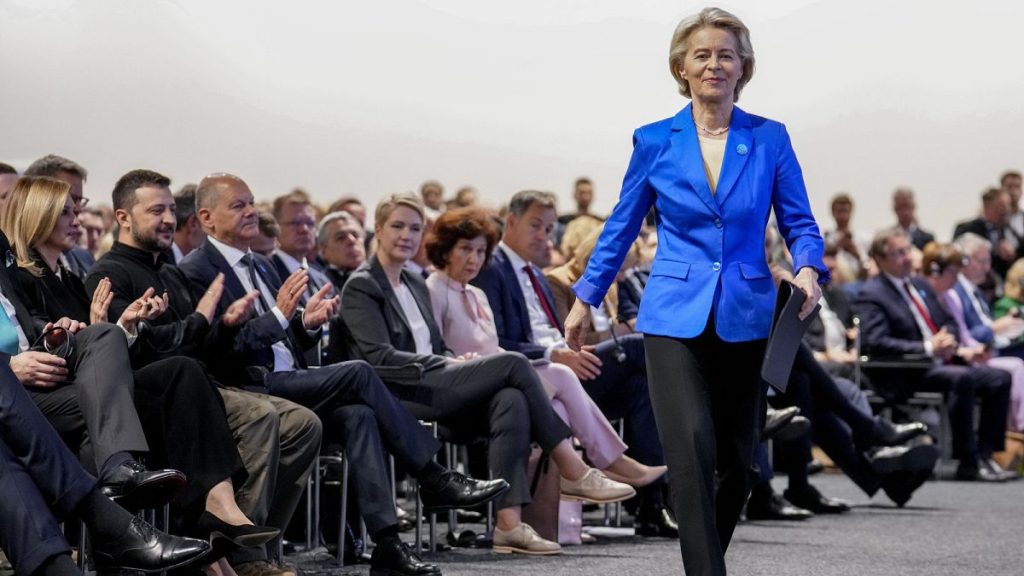The new European Commission President, Ursula von der Leyen, has requested that EU countries nominate two candidates – one male and one female – for the next five-year term in order to ensure gender parity in her new team. However, as Commissioner nominations trickle in from EU capitals, her plan is facing early challenges. While member states have until August 30 to propose nominees, no country has yet indicated willingness to pitch two candidates from both genders in line with von der Leyen’s request. Despite this, von der Leyen remains committed to selecting the best-prepared candidates who share the European commitment and aims for an equal share of men and women at the Commission table.
Nine member states have already confirmed their candidates for the new Commission, with six fielding new candidates who have not complied with von der Leyen’s request for gender parity. The remaining three countries – Latvia, the Netherlands, and Slovakia – have opted to re-nominate their outgoing Commissioners and are therefore not required to field both a man and a woman. Irish Taoiseach Simon Harris has indicated that he will only be nominating former Finance Minister Michael McGrath, despite taking gender parity “extremely seriously.” The Czech Republic and Slovenia have also nominated only male candidates, while Finland, Spain, and Sweden have chosen female candidates only. Von der Leyen’s spokesperson emphasized that the President’s request for gender parity at the Commission table is clear, and she will conduct interviews and select candidates based on their merits.
The outgoing von der Leyen Commission had a gender balance of 13 female and 14 male Commissioners, making von der Leyen the first woman to preside over the EU’s executive arm. In her second term, she has vowed to develop a “Roadmap for Women’s Rights” to address various gender-related issues such as the pay and pensions gap, violence against women, and reconciling care and career responsibilities. Despite facing challenges in achieving gender parity in her new Commission, von der Leyen remains committed to promoting equality and diversity in EU leadership positions.
The European Commission President has formally requested EU governments to nominate two candidates – one male and one female – for the next five-year term in order to achieve gender parity at the Commission table. While member states have until the end of August to propose nominees, no country has yet indicated willingness to comply with von der Leyen’s request. Despite this lack of compliance, von der Leyen remains focused on selecting the best-prepared candidates who share the European commitment and aims for an equal representation of men and women in the new Commission.
Several EU countries have already confirmed their candidates for the new Commission, with some opting to nominate only male candidates while others have chosen female candidates only. The Czech Republic, Slovenia, and Ireland, among others, have selected single-gender candidates despite von der Leyen’s call for gender parity. Despite these challenges, von der Leyen’s spokesperson reiterated the President’s commitment to ensuring equal representation of men and women at the Commission table. Von der Leyen has made gender equality a priority during her tenure, and she has pledged to continue promoting women’s rights and addressing gender-related issues in her second term as Commission President.
The gender balance of the outgoing von der Leyen Commission, with 13 female and 14 male Commissioners, reflects the progress made in achieving greater gender equality in EU leadership positions. Von der Leyen’s historic presidency as the first woman to lead the EU’s executive arm underscores the importance of promoting diversity and inclusion in European governance. Despite facing early challenges in ensuring gender parity in her new Commission, von der Leyen remains dedicated to advancing women’s rights and addressing gender disparities within the EU. Her commitment to selecting candidates based on their merits, while also striving for a balanced representation of men and women, highlights her vision for a more equitable and inclusive European Commission.


